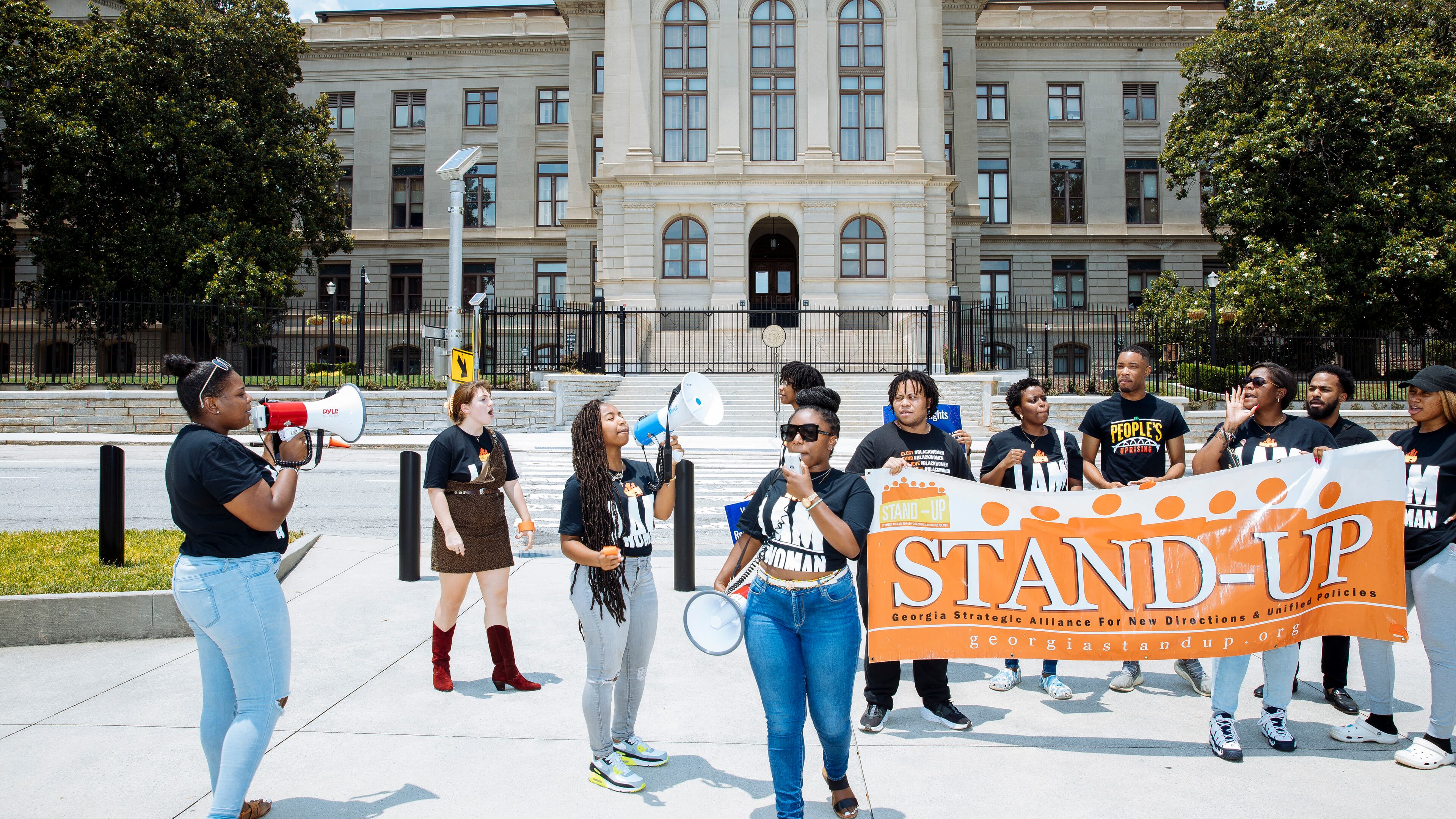OPINION: Women, it’s time to run for something

The news on Jan. 23, 1973, that the Supreme Court had legalized women’s access to abortion through Roe v. Wade wasn’t even the top story in The Atlanta Constitution that day.
The big news, instead, was that former President Lyndon B. Johnson had died at his Texas ranch.
More coverage of the Roe decision came over the next few days, with one article quoting the president of Georgia Right to Life, which is still a force in Georgia politics, promising, “The battle has just begun.” Another article described women in Atlanta, who had been lobbying for abortion rights, saying they were, “Excited and a little confused,” about how the ruling would be implemented.
But what really caught my eye in the 49-year-old edition of the paper was a separate item with advice for women. “Share knowledge with your mate,” it read.
If you want to see how much American society has changed since Roe was decided nearly 50 years ago, I recommend a thorough read of that item, which counsels women to tell their husbands, not about how the Roe ruling might affect them, but about ways to help their men keep hair and hands well-groomed.
“He may never get around to asking, but that doesn’t mean the man in your life wouldn’t like to have some of your know-how,” it said.
Since the day that Roe was decided, and maybe because of the day Roe was decided, women have a lot more to teach men than how to brush their hair.
Women have jumped from being 24% of college students in 1973 to 57% of graduates in the classes of 2020.
They’ve jumped from 9% of medical students in 1973 to 54% of medical school graduates in 2020, and from being 7% of law school students 50 years ago to making up 54% of law school graduates today.
Women’s financial independence has increased, and so have their expectations of being able to make decisions for themselves.
But as much as women’s roles in the workforce and in their communities have been revolutionized, the one area that hasn’t changed as much is their participation in politics and elected office.
Women made up 6.4% of state legislatures in 1974. They’re only about one-third of state lawmakers across the country now. Men outnumber women in 49 of 50 state legislatures in the country, including in Georgia.
The numbers are even lower in Congress, where 28% of House members are female and 24% of the senators are women.
Why does that matter? Because women make up the majority of voters and the majority of the population, but a drastic minority of voices in government.
That means that laws that affect women’s lives, including now their most personal choices about access to abortion, will be mostly decided by men.
“How do women celebrate the Fourth of July knowing they are not truly free?” Melita Easters said to me in an interview on Thursday. “Women are being placed in a second class citizenship by this decision.”
Easters is the executive director of Georgia WIN List, which has been dedicated to electing pro-choice Democratic women to the state legislature for the last 22 years. She said Friday’s ruling makes that work more urgent than ever.
“Male legislators in hearings on bills about choice stumble over pronouncing the names of the female reproductive body parts,” she said. “I think some of them would be hard-pressed to show you on a diagram where they are.”
Easters credited the growing number of women in the Georgia Legislature for the fact that Georgia’s six-week abortion ban, which could soon be implemented, passed by the narrowest margin of any anti-abortion law in the country, with just one vote to spare in the state House and with only one woman voting yes in the state Senate.
Just a few more pro-choice Democratic women could reverse the outcome, she said, and she believes more will be elected in 2022 because of last week’s ruling.
Democrat women aren’t the only ones who want better representation in office.
Martha Zoller is a conservative talk radio host in Gainesville and the interim director of the Georgia Life Alliance, an anti-abortion advocacy group.
She ran for Congress once herself as a Republican and knows about the barriers that women face running for office.
They often delay running because they have young families at home. Once they’re in a race, they’ll probably face sexism and questions like she did, when a voter asked who was taking care of her kids while she was campaigning. But she said more Republican women need to be involved , too.
“I don’t buy into the argument that the only thing women care about is reproductive rights and education. I think they’re all important,” she said. “But I think that it is hard to get a woman’s point of view, and you have to work harder to do it,” when men outnumber women in office.
Since the day Roe was decided in 1973, almost everything about women’s lives and roles in the country has changed, but until more women run for office and win, many decisions in their lives are going to be decided by men.
If women want real independence, it’s time to run for something.



